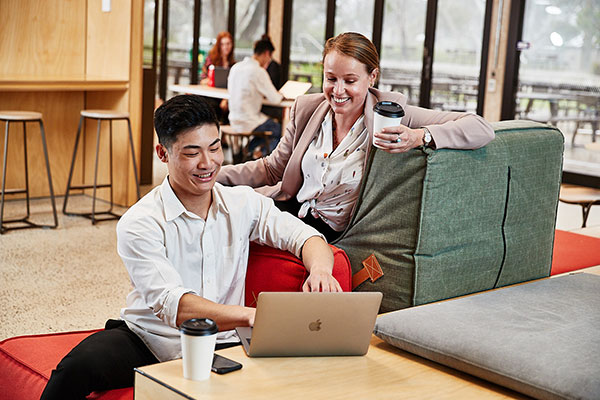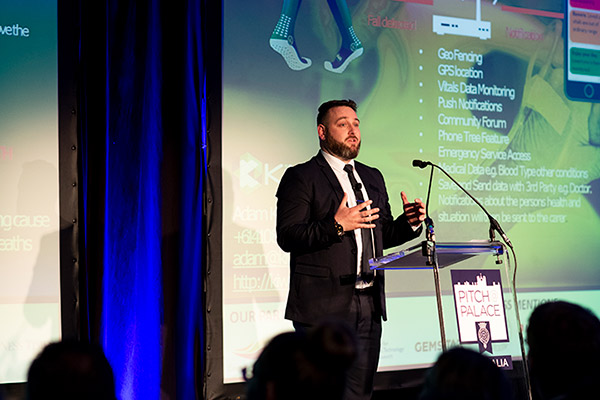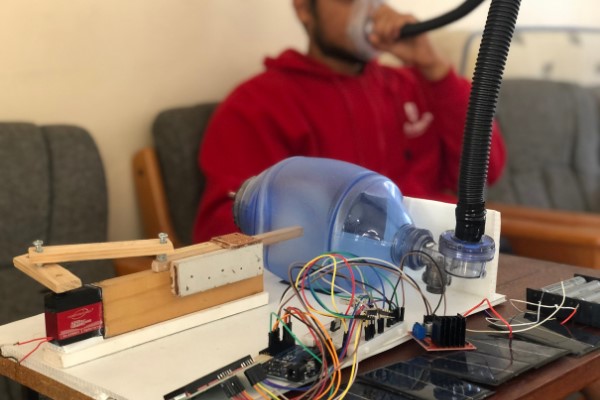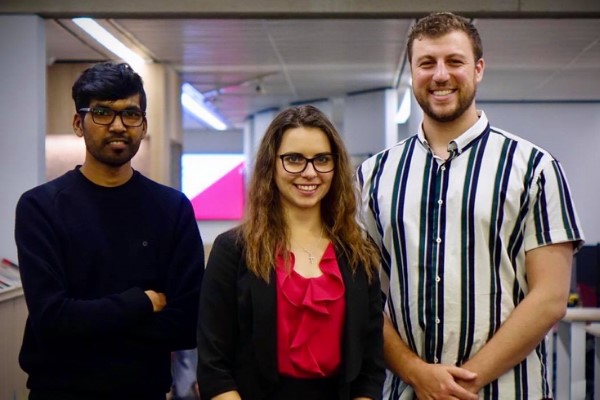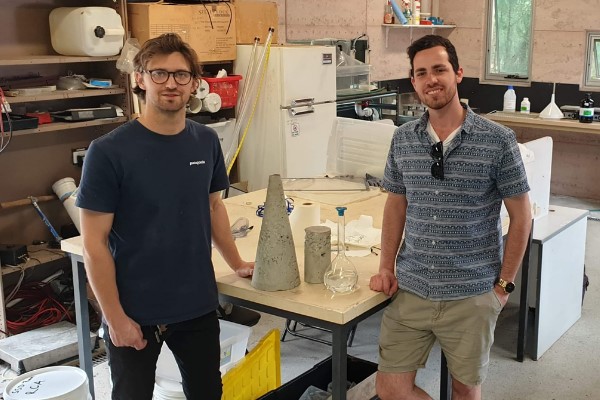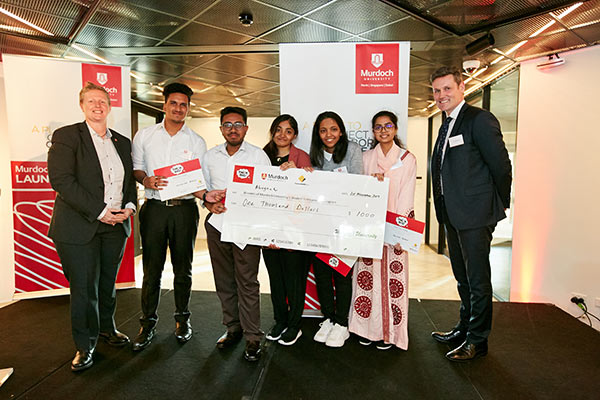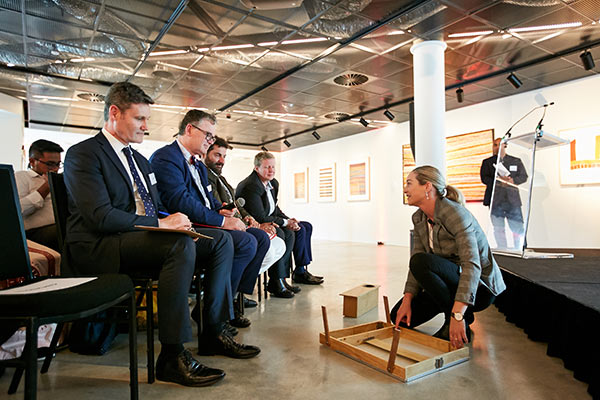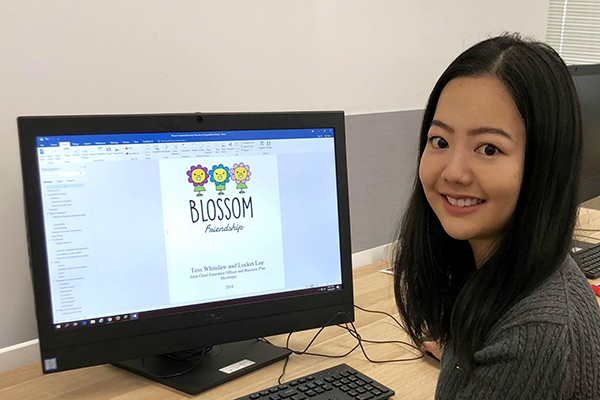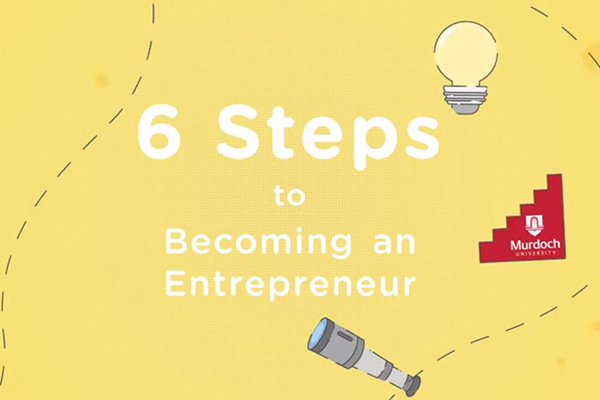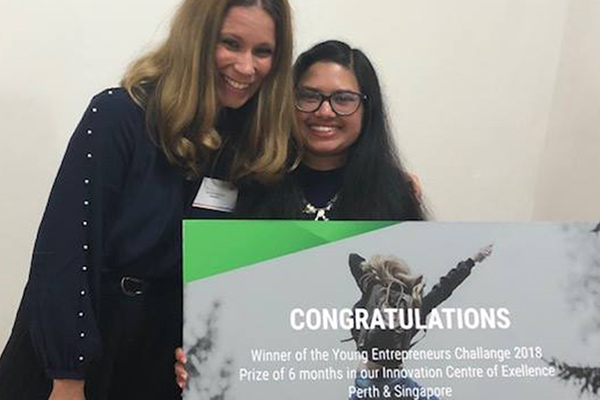
You know how it goes – you’re sitting in class or nearing the end of your degree and start to look for jobs online, excited by the opportunities available. But quite often you notice there’s a catch.
Even though you are looking at graduate-entry level jobs, companies want applicants with a minimum of 1-2 years’ experience. More and more, employers are after graduates with more than just good marks; they’re looking for well-rounded graduates who not only have sound academic achievement but also have demonstrated skills in leadership, communication, problem-solving and customer service.
But how are you supposed to have gained that experience when you’ve been at uni studying? Here are twelve top tips on how you can smash your exams and get real-world experience in business.
Companies are expecting graduates more and more to have experience before hitting the workforce. Employers are after graduates with more than just good marks. Employers are looking for well-rounded graduates who not only have sound academic achievement but who also have demonstrated that they have built skills in leadership, communication, problem solving and customer service.
“We found employers are looking for graduates with genuine ‘on the job’ accumulated experience in professional work settings," Associate Professor Antonia Girardi, Lecturer in HR at Murdoch University, said.
“Experience can involve extra curricula activities, community involvement, and the intern experience. Employers are also looking for graduates who are self-aware and have adaptive dispositions.
“When we recently scanned over 800 job ads the most significant skills employers consider necessary for graduate employment are related to communication; team work; self-awareness; self-management; problem solving; English language proficiency; computer literacy; and, numerical literacy. A scan of the job ads also identified an emphasis on communication skills (which also encompass interpersonal, negotiation, writing and presentation skills).”
So how can you get experience, before getting experience?
There are many ways that you can get experience whilst still studying, which will not only give you valuable experience for your future career, but also enhance your studies at the same time. Read on for some ideas on how you can incorporate work experience into your studies so you’re prepared for the world of business when you eventually get there.
1) Internships and real life projects
At Murdoch you can apply for Work Integrated Learning (WIL). Work Integrated Learning gives you the opportunity to incorporate real-world learning into your course. You could apply for an internship, work on a real project with a real client within your course or benefit from simulated learning experiences and projects. Plus, we have a dedicated WIL team to assist you in finding placements and support you through your journey.
If you are an International Student, be sure to check your VISA requirements before committing to any work opportunities. Our dedicated WIL team can assist you with any questions you may have on this.
“I think this experience [WIL] has definitely helped shape/re-shape my understanding of how to work well in an office environment and how to build long-lasting relationships.”
Shane Doorn (Accounting student, interned at The City of Melville)
Internships
Completing an internship is the best way you can show your future employer that you have had experience in the workplace. Finding an internship within you chosen field of study and career path would be super beneficial however not always necessary! Make sure you get a reference and keep in touch with your supervisor.
“I completed the professional business internship unit in my final semester. I have had the opportunity to apply the knowledge I have gained from my studies in real life work situations and see real life outcomes. I am now feeling confident, successful and excited to begin my professional career.”
Thao Le Ho (Management student)
Learning through simulation and real projects
Murdoch offers simulated and real world project learning experiences across many courses. In your business or commerce degree you can simulate real workplace situations or problems and come up with solutions through case studies, or work with real clients on their business problems.
Our students have had the opportunity to develop strategic marketing plans and present their report and recommendations to real clients. Some recent clients have been the City of Rockingham, local sporting group Hawks Ice Hockey Club, and Nakuru Hope, a Kenyan orphanage. Some students have even had their recommendations put into practice at the organisation.
Learn more about working in Australia as an international student at Murdoch.
2) Volunteering
Volunteering is a great way to get out of your comfort zone and start to build people skills. Not only do you feel great for giving back, you also will learn new skills, network and deal with new situations that will help you in the workplace. Volunteering looks great on your resume, plus you could make some new mates at the same time! Check out our Volunteering Hub for some ideas on where to start.
3) Student Societies
Get involved! Join a relevant or non-relevant student society (hello The Hummus Society) and get on the committee. You’ll learn new skills like events management, project management, customer service, events marketing and more, all whilst networking with your peers and having fun in the process.

4) Networking/seminars/workshop events
Attending events and getting your network on is a great way to open up opportunities for yourself. Attend University events, workshops and seminars wherever you can and talk to your lecturers! You could meet industry and future employers at events or tap into your lecturer’s professional network. Remember sometimes it is about who you know!
“Throughout my studies, I have been guided and encouraged by incredible teachers who have industry relevant experience. Being taught through an understanding of real world application has only fuelled my interest more.”
Aideen Myles (Human Resources Managment student)
5) Study Abroad/Exchange
There is no better way to learn than by immersing yourself and travelling to another country. Interning and working in another country gives you global brownie points and will look excellent on your resume. The ability to understand and work across an increasingly global world will be key for future business graduates. Check out our partner unis and find out where your studies could take you. We offer study abroad and exchange options across the globe. You could travel and study in Europe, Asia and the Americas.
If you are an International Student, make sure you highlight this in your cover letter and resume, as it showcases that you adaptable and can thrive in an unfamiliar environment.
“I have experienced real-world learning both domestically and internationally while studying at Murdoch. I was a part of the Australian Consortium for 'In-Country' Indonesian Studies (ACICIS) six-week Business Professional Practicum in Jakarta. I undertook two weeks of intensive language studies at Atma Jaya Catholic University and was fortunate enough to complete my four-week internship at the Western Australia Trade and Investment Office. This experience gave me the opportunity to apply the language skills I had acquired throughout my course and be exposed to international business in Jakarta.”
Georgia Gillies (Global Politics and Policy + Indonesian student)

6) Graduate Programs
Depending on your course, you could apply for a graduate program. A grad program is a sure way to get your foot in the door and are offered by a range of different companies. Grad programs allow graduates to launch their careers through a structured introduction to the company/workplace. Placements are very competitive.
7) Further studies – Honours or Postgraduate study
If you did well in your Bachelor degree, you could consider an Honours degree. This normally involves one additional year of study following the successful completion of a three-year undergraduate degree. An Honours degree involves you spending a year researching an area of interest/topic in depth. You can add this work into your portfolio to show future employers. Completing an Honours degree will show employers that you have demonstrated the ability to achieve a complex goal, meet deadlines, research and build cases independently, using resources effectively and write and present well.
You could also round out your studies and complete a Master of Business Administration (MBA). An MBA will help you develop sound analytical skills, better prepare you for leadership positions, give you an edge over other job seekers and will assist you in fast-tracking your career. Our MBA focuses on giving you practical experience through an applied research project where you will create practical solutions for contemporary workplaces.
8) MasterClass
Benefit from Australia’s only university program that allows you to study and pursue your postgraduate degree whilst still studying your undergraduate degree! A postgraduate degree is a guaranteed way to fast track your career and help you get an edge on other job applicants. Pursuing our MasterClass shows determination and dedication to your future employer and it will open up many opportunities for you to gain some real world experience.
“At the end of my first year I was accepted into MasterClass. This program has opened my eyes to a range of different things and allowed me to grow as a person.”
Emma Wray (Accounting and Business Law student)
9) Freelancing/side hustling/doing it for the love of it
If you’re looking to pursue a career in the creative industries (marketing or communications) you could turn your passion into experience by offering your services out as a freelancer. Start your side hustle now and start gaining some real experience. Content marketing is the way of the future and graduates need to be well-rounded and multi-skilled! Showcase your creativity and writing skills by starting a blog, creating an app or by demonstrating that you have put something together with your passion! This will in turn double as an e-portfolio of work that you can show future employers.
“I launched my social media profile to put web marketing into practice while studying. I wanted to build a portfolio that I could take to prospective employers. I didn’t expect that it would be so popular.”
Sameera Afzaal (Communication student who launched an Instagram profile and gained 10,000 followers)

Check out our alumnus Sameera’s Insta for some inspo.
10) If you seek help you will find
We’re all about support here at Murdoch, so come and talk to us! We have a dedicated Careers and Employment Centre which helps students and alumni of Murdoch to feel supported through their degree, find job opportunities, improve resumes etc. They are housed in our Library and live next door to Launchpad.
Launchpad is Murdoch’s space for students to connect, collaborate and create, plus we have an Entrepreneur in Residence – Jeremy Chetty (Founder and Managing Director of Student Edge) who is waiting to hear from you! You can drop by and visit Jeremy (who is also a graduate of Murdoch) and listen to his advice and tips on starting a business and becoming successful. You can drop by Launchpad to chat to Jeremy on Mondays and Thursdays from 12pm-3pm in booth 3 of Launchpad (no bookings necessary, however the line can get long so feel free to drop Jeremy an email.
11) Get a part time, holiday or temping job
Customer service is a must with any job you pursue, you need people skills! Earn some extra cash whilst practising problem solving and customer service skills. Working retail is the best way to gain these skills, plus, most stores have sweet staff discounts for students too. Working part time whilst studying shows commitment and the ability to juggle multiple priorities at once, which looks good to future employers.
BONUS TIP: If you don’t already have a LinkedIn profile, get one! LinkedIn is a great way to start networking and connecting with companies you admire, people you have met during your studies and doubles as an online resume. Recruiters and employers usually check social channels, so make sure your presence is a good one! First impressions count.
12) Maximise class projects/real world projects
Your studies more often than not include real-world or simulated projects. Make the most of these projects and think of it as an opportunity to put together a great piece of work, worthy of showing a future employer, not just as your next assignment due tomorrow that you just finished at 3am ;)
“Through a Business Innovation Challenge I had the chance to pitch solutions to the board of a $30 million business and our team won – it was a great achievement.”
David Giang (Finance Student)
